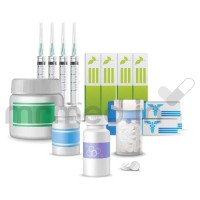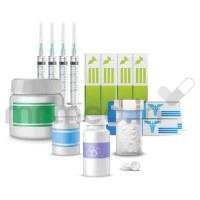Bilypsa 4mg tablet is an antidiabetic drug contains an active ingredient called Saroglitazar. It belongs to the medication class known as a dual peroxisome proliferator-activated receptor (PPAR) agonist. It is used to treat diabetic dyslipidemia (an abnormal amount of lipids in the blood) and hypertriglyceridemia (high level of triglycerides in the blood) in patients with type 2 diabetes mellitus that is not controlled by statin therapy.
Bilypsa 4mg tablet should not be consumed if you are allergic to Saroglitazar or any of its ingredients in the medication. Before taking this medicine, inform your doctor if you have liver or kidney issues or a history of muscle problems. This medicine has not been studied in severe heart failure patients, so caution is needed in those with heart disease. Although weight gain and edema are uncommon, if you rapidly gain weight, watch for swelling and heart failure symptoms.
The safety and effectiveness of Bilypsa 4mg tablet have not been confirmed for use in children. Before starting the treatment, inform your doctor if you are pregnant, think you may be pregnant, or planning to get pregnant or breastfeeding.
Therapeutic Effects of Bilypsa 4mg Tablet 10's
Pregnancy
Limited information is available on using Bilypsa 4mg tablet during pregnancy. Notify your healthcare professional if you are pregnant or planning to have a baby think you may be pregnant. Your doctor will suggest this medicine only if needed.
Breast Feeding
It is unknown whether Bilypsa 4mg tablet is excreted in breast milk. So, before starting the treatment, inform your doctor if you are breastfeeding. Contact your doctor for more information. Your doctor will suggest this medicine only if needed.
Lungs
It is unknown whether Bilypsa 4mg tablet is safe for patients with lung problems. Inform your physician if you have any lung disease before starting the treatment. Contact your doctor if you experience any lung-related symptoms.
Liver
Bilypsa 4mg tablet should be used cautiously in liver patients. Before starting the treatment, inform your physician about pre-existing liver conditions.
Alcohol
Do not consume alcohol while taking Bilypsa 4mg tablet. Please speak with your physician for more information.
Driving
It is unknown whether Bilypsa 4mg tablet alters driving ability. However, if you experience side effects like tiredness or drowsiness, avoid driving and using machines.
Common
- Gastritis (stomach inflammation)
- Nausea
- Vomiting
- Asthenia (weakness)
- Chest discomfort
- Dizziness
- Fever
- Weakness
To manage the side effects of Bilypsa 4mg tablet, follow the prescribed dosage and report side effects promptly. To lower the risk of additional liver damage, maintain a healthy diet and exercise regularly. Monitor your liver function with routine blood tests. If you experience any liver-related pain or discomfort, consult your doctor for guidance.
Common side effects of Bilypsa 4mg tablet include gastritis (stomach inflammation), nausea, vomiting, asthenia (weakness), chest discomfort, dizziness, fever, and weakness. It is crucial to consult your doctor for any concerns or persistent side effects.
Limited information is available on using Bilypsa 4mg tablet during pregnancy. So consult your medical professional regarding the usage. The potential benefits and risks should be carefully assessed. Your doctor will suggest taking this medicine only if it's necessary.
If you miss a dose of the medicine, take it as soon as possible. However, if it's close to the time for your next dose, skip the missed dose and continue with your regular schedule. Do not double the dose of the Bilypsa 4mg tablet.
Bilypsa 4mg tablet is an antidiabetic drug used to treat diabetic dyslipidemia and hypertriglyceridemia in individuals with Type 2 diabetes mellitus, especially when statin therapy is ineffective in controlling these conditions.
| Molecule Name: Saroglitazar | Therapeutic class: Antidiabetic drug |
Pharmacological class: Dual peroxisome proliferator-activated receptor (PPAR) agonist
| Indications: 1. Treats diabetic dyslipidemia (an abnormal amount of lipids in the blood) 2. Hypertriglyceridemia (high level of triglycerides in the blood) |


-700x700-product_thumb.jpg)
-700x700-product_popup.jpg)
-80x80-product_popup.jpg)
-80x80-product_thumb.jpg)


